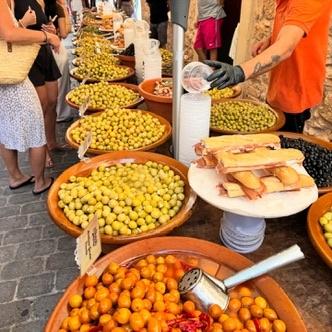How do Palma’s food festivals incorporate local wines and beverages?
Similar Topics
palma food festivals
local wines mallorca
mallorcan grape varieties
manto negro wine
callet wine
mallorca craft ciders
artisanal liquors hierbas
sustainable local production
Palma’s food festivals provide a vibrant platform for showcasing the rich culinary heritage of Mallorca, and a key aspect of this celebration is the integration of local wines and beverages. These events often highlight Mallorcan wines alongside traditional dishes, encouraging visitors to explore the depth and variety of the island’s viticulture. Attendees can sample wines produced from indigenous grape varieties such as Manto Negro and Callet, whose unique flavors reflect Mallorca’s terroir. This pairing not only enhances the dining experience but also educates festival-goers about the island’s evolving wine industry, which has gained recognition for its quality and distinctive character.
In addition to wine tastings, many food festivals feature workshops and guided tastings led by local sommeliers and winemakers. These sessions provide insight into the history, production methods, and flavor profiles of Mallorcan wines, fostering a deeper appreciation for these beverages. Similarly, craft ciders and artisanal liquors, including the famous hierbas—a herbal liqueur native to Mallorca—are often presented as an integral part of the local drink culture. Their presence at these festivals complements the food offerings and highlights the variety of traditional beverages available on the island.
Moreover, Palma’s festivals often emphasize sustainable and quality local production, aligning with broader culinary trends focused on authenticity. Markets and stalls offer local wines and beverages directly from producers, encouraging a direct connection between growers and consumers. This approach not only supports the local economy but also reinforces the cultural identity tied to Palma’s food and drink heritage. Overall, Palma’s food festivals serve as an immersive experience where the island’s cuisine and beverages are celebrated in harmony, inviting visitors to savor Mallorca in a way that is both educational and delightfully enjoyable.
In addition to wine tastings, many food festivals feature workshops and guided tastings led by local sommeliers and winemakers. These sessions provide insight into the history, production methods, and flavor profiles of Mallorcan wines, fostering a deeper appreciation for these beverages. Similarly, craft ciders and artisanal liquors, including the famous hierbas—a herbal liqueur native to Mallorca—are often presented as an integral part of the local drink culture. Their presence at these festivals complements the food offerings and highlights the variety of traditional beverages available on the island.
Moreover, Palma’s festivals often emphasize sustainable and quality local production, aligning with broader culinary trends focused on authenticity. Markets and stalls offer local wines and beverages directly from producers, encouraging a direct connection between growers and consumers. This approach not only supports the local economy but also reinforces the cultural identity tied to Palma’s food and drink heritage. Overall, Palma’s food festivals serve as an immersive experience where the island’s cuisine and beverages are celebrated in harmony, inviting visitors to savor Mallorca in a way that is both educational and delightfully enjoyable.
🧩 Related Questions
Related Question
What family-friendly activities are available at automotive exhibitions like the Motor Show Mallorca?
Related Question
Do Mallorca movie location tours include any behind-the-scenes stories or insights from film crews?
Related Question
What impact did historical trade routes have on the development of Palma’s central streets?
